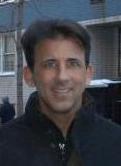The new kewl trend in literary journalism is to argue that the Harry Potter series hasn't resulted in increased reading--among adolescents or adults.
All three articles read like poorly written blog entries, filled with specious reasoning. All three leave newspaper readers knowing far less than each pretends to convey. And all three articles are short on evidence and long on anecdote and opinion. (Mehegan mentions a survey nobody's seen yet. And Rich finds a survey showing that "the percentage of kids who said they read for fun almost every day dropped from 43 percent in fourth grade to 19 percent in eighth grade in 1998," and the results were unchanged in 2005, but I'm not sure what that tells us since we don't have a control group, we don't know the average age when children start reading Harry Potter, and we don't know how much of an impact assigned reading has on adolescent reading habits.)
But, for all their tenuous conclusions, the Mehegan and Rich essays are at least commendable for raising the question, which is clearly an open one.
It's the Ron Charles piece that is particularly deserving of ridicule:
It happened on a dark night, somewhere in the middle of Book IV. For three years, I had dutifully read the "Harry Potter" series to my daughter, my voice growing raspy with the effort, page after page. But lately, whole paragraphs of "Harry Potter and the Goblet of Fire" had started to slip by without my hearing a word. I'd snap back to attention and realize the action had moved from Harry's room to Hagrid's house, and I had no idea what was happening.
And that's when my daughter broke the spell: "Do we have to keep reading this?"
O, the shame of it: a 10-year-old girl and a book critic who had had enough of "Harry Potter."
What does this little story tell us? Only that Ron Charles managed to convey, quite clearly, his own boredom to his daughter--a dilemma I suspect he would have faced even if he had been reading a Frank Baum story to her. The obvious problem here is not that his daughter lost interest in the series, but that he is reading it aloud to a 10-year-old. A 700-page book, no less. At what point was this man going to let his poor daughter start reading on her own? Was he planning on torturing her with his dramatic interpretation of Watership Down when she reached 11? Or how about Proust on audio tape when she turns 18?
The entire article says far less about Harry Potter, J. K. Rowling, the book industry, and the reading public than it does about--well, about Ron Charles. To wit:
The vast majority of adults who tell me they love "Harry Potter" never move on to Susanna Clarke's enchanting "Jonathan Strange and Mr. Norrell," with its haunting exploration of history and sexual longing, or Philip Pullman's "His Dark Materials," a dazzling fantasy series that explores philosophical themes (including a scathing assault on organized religion) that make Rowling's little world of good vs. evil look, well, childish.
This paragraph alone says all we need to know about Ron Charles's reading (and moralizing) tastes--not to mention his abilty to draw unsupported generalizations from anecdotal conversations. Yes, Pullman's books are excellent in their own way; yes, they deal with philosophical themes; yes, they'll offend anyone who subscribes to an organized religion--and, yes, (as even Charles implies) they are preachy, pedantic, and ponderous--too much so, I've always felt, for a series of books aimed at young readers. And they also lack three elements that the Harry Potter books have in spades: wit, humor, and memorable characters.
And if a book ever exhibited symptoms of a literary case of elephantitis, it would be Suzanna Clarke's sprawling doorstop--which, you'd never guess from the article, was a huge best-seller. Critics like Charles might compare her to Pynchon and Vollman but I found the novel more like Conan Doyle* framed in the plodding plots of Bulwer-Lytton and burdened by the purple prose of Jean Auel.
Again, the problem is not with his friends, but with the question posed by Charles himself. Why does he believe that Rowling to Pullman to Clarke should be a natural reading course for everybody (or anybody)? While he was conducting his little survey, did he happen to ask if his adult friends had "moved on" to Tolkien? Asimov? Vonnegut? Neil Stephenson? Ursula Le Guin? Or, for that matter, Pynchon and Vollman?
Does Charles really want to argue, as he seems to, that we'd be better off if Harry Potter (or Stephen King or Watership Down or The Wizard of Oz or Gone with the Wind or Little Women or Uncle Tom's Cabin) had never been read at all? Or if fewer people had read them? Or if they served the sole purpose of getting people to read books that aren't best-sellers?
The argument that people should read something other than "best-sellers" is a good 200 years old, and it doesn't get any better with repetition. Neither does reading about a book critic's Mencken-like sense of cultural superiority.
What disappoints me about articles of this type is that they delight in contrarianism for its own sake--a fit of pique substituting for a series of carefully reasoned arguments. That's what blogs like this one are for. Not the Washington Post.
* To clarify: I refer here to the atmospherics of Conan Doyle's historical romances or his phantasmagorical Challenger novels--not to the formulae of his Sherlock Holmes tales.
